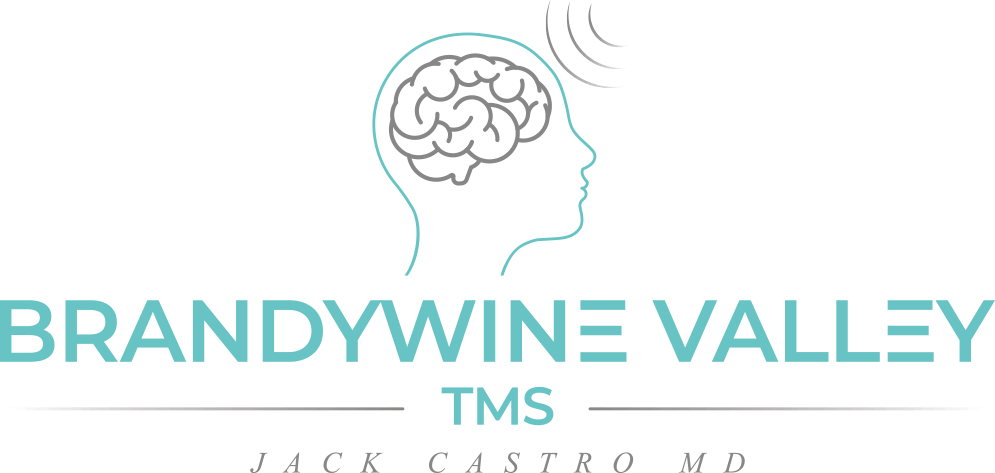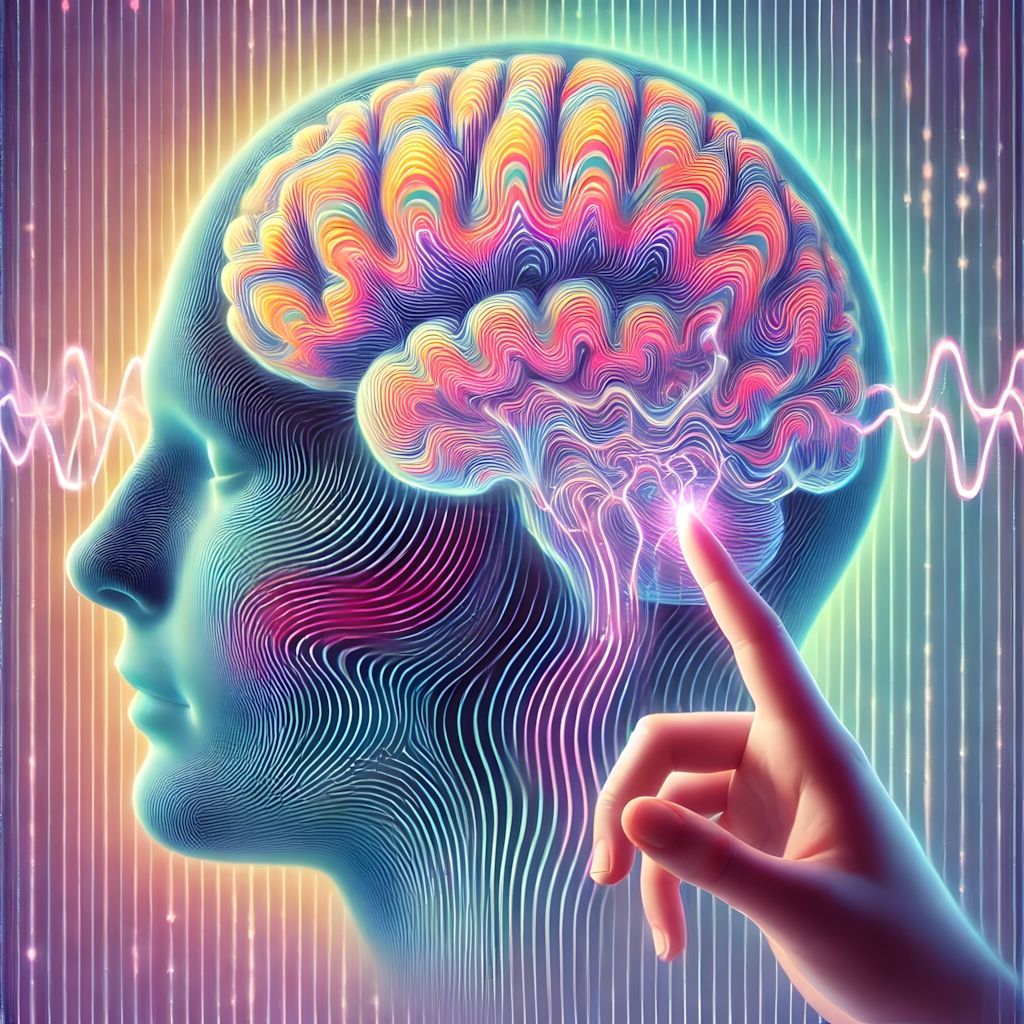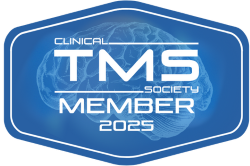Understanding and Addressing Potential Side Effects of TMS
Dr. Jack Castro • May 3, 2024
In recent years, Transcranial Magnetic Stimulation (TMS) has emerged as a revolutionary treatment option for various mental health conditions, offering hope to individuals struggling with depression, anxiety, OCD, and other disorders. While TMS therapy is generally safe and well-tolerated, it's essential to understand and address potential side effects to ensure a positive treatment experience.
What is TMS Therapy?
TMS therapy, short for
Transcranial Magnetic Stimulation, is a non-invasive treatment modality that utilizes magnetic fields to stimulate specific areas of the brain associated with mood regulation. Unlike traditional treatments such as medication or psychotherapy, TMS therapy does not involve surgery or the ingestion of medication, making it an appealing option for many individuals.
Common But Mild Side Effects
While TMS therapy is generally well-tolerated, some patients may experience mild side effects, including:
- Headaches: Headaches are the most commonly reported side effect of TMS therapy. These headaches are typically transient and easily subside on their own or with over-the-counter pain relievers such as ibuprofen or acetaminophen. Some of my patients (perhaps a third of them) have complained of mild headaches during or right after treatment. Brain stimulation with TMS is most often targeted to the left side and toward the forehead, and that is where the headaches tend to happen. The literature does not support new onset of chronic migraines or headaches as a result of TMS therapy, and I have certainly not heard of any complaints of ongoing headaches after cessation of treatment.
- Scalp Discomfort: Some patients may experience temporary discomfort or tingling sensations on the scalp during TMS sessions. This discomfort is usually mild and does not persist beyond the duration of the session.
- Muscle Twitches: During TMS therapy, patients may experience mild muscle twitches, particularly in the facial muscles such as the eyelids (click here to see video of my wife Dr Amanda Castro undergoing a trial of TMS therapy). These twitches are a normal response to the magnetic stimulation, and always resolve once the session is complete.
- Feeling Faint: Patients may feel lightheaded or faint during TMS sessions. I have seen this happen three times, and it was only at the beginning of the first session. This is akin to getting dizzy when one gets their blood drawn. Some patients experience a vasovagal episode triggered by the stress and fear of not knowing what to expect. Once they get accustomed to the feeling of having their brains stimulated, patients easily acclimate.
Rare But Severe Side Effects
While rare, TMS therapy may also be associated with more severe side effects that require immediate medical attention. These include:
Seizures: Although extremely rare, TMS therapy has been associated with seizures in some patients, particularly those with a history of epilepsy or other seizure disorders. It's important to note that in the rare event a patient experiences a seizure during a TMS session, they do not become epileptic moving forward. Additionally, the seizure would only occur during the TMS session, and it would happen in a safe environment in the office, not while the patient is driving or operating machinery. Patients at risk for seizures should be closely monitored during TMS sessions.
To put this into perspective, the well-known and commonly used antidepressant bupropion (aka Wellbutrin) is known to cause seizures and estimated frequency, when daily doses are below 300 Mg, is estimated at 0.1% but increases to 0.4% with doses up to 450 mg daily (1). Different reports have estimated different frequency of TMS-induced seizures. For example, Rossi et al estimated it to be <1/30,000 (<0.003%) (2). The generally accepted statistic for TMS-induced seizures is less than 1% (3). On the other hand, my friend and mentor Dr John O’Reardon (click here for picture with Johnny) who has been doing TMS for 3 decades and whose research lead to FDA approval of TMS in 2008, tells me has never seen a TMS-induced seizure when he was at Penn Medicine (https://www.med.upenn.edu/tms/) nor in his private practice (https://www.johnoreardonmd.com/).
Hearing Loss: I have never seen this happen, but there are reports of TMS therapy causing temporary hearing loss or tinnitus due to the noise it causes. Again, to put this into perspective, a TMS system is less noisy than your regular blow dryer or blender in your kitchen. In any case, all patients are provided with ear plugs to avoid discomfort.
Additional Considerations
- Commitment: While not a side effect per se, TMS therapy requires commitment. Patients need to come to the office on a daily basis for several weeks. This can be tiring in and of itself, but is essential for optimal treatment outcomes.
- Discomfort During Sessions: Another consideration is the discomfort some patients may experience from sitting still on the TMS chair for 20-30 minutes at a time. To address this, patients are encouraged to bring a cushion or pillow to support their backs or necks, and enhance their comfort during sessions.
- Comparison to Tattoo Sensation: Anecdotally, some patients compare the sensation of TMS to that of getting a tattoo. However, I’ve been told by my patients with tattoos that TMS therapy was less painful or uncomfortable than getting a tattoo.
Conclusion
In conclusion, TMS therapy offers significant benefits for individuals struggling with depression and other conditions. If you are considering TMS, it's important that you are aware of the potential side effects and take steps to address them effectively if they occur. By understanding the nature of such side effects I hope you will feel more confident when and if you decide to give TMS therapy a chance to help you get where you need to be. If you are local to Wilmington Delaware, we can help.
Call (302) 635-1710 or

NAVIGATION LINKS
FREE CONSULTATION
It's important to know that you are not alone. Get help with depression today!

TMS THERAPY SUPPORTS MENTAL WELLNESS
- Depression
- Lack of Joy
- Sadness and Despair
- Low Mood
- Lethargy
- Insomnia
- Oversleeping
- Social Isolation
- Self-Harm
- Substance Abuse
- Suicidal Ideation
- Alcoholism








